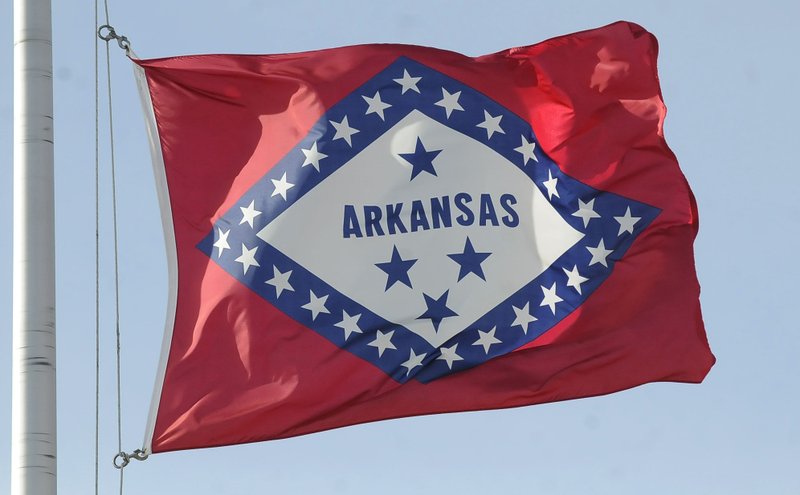Identical bills that would distribute $5.84 billion in general revenue to state-supported programs in the coming fiscal year cleared their final legislative hurdles Tuesday.
Most of the increased revenue in fiscal 2022, which starts July 1, would be distributed under the state's Revenue Stabilization Act to human services programs, public schools, colleges and universities, and correctional programs under Senate Bill 702 and House Bill 1949.
The Senate voted 35-0 for HB1949, while the House voted 93-3 for SB702. Both bills now go to the governor.
Republicans Reps. Robin Lundstrum of Elm Springs, Josh Miller of Heber Springs and John Payton of Wilburn voted against the Senate bill.
The fiscal 2021 budget originally totaled $5.89 billion, but the budget was not fully funded because a forecast issued April 2, 2020, anticipated the covid-19 pandemic fallout would reduce general revenue to $5.68 billion.
But net general revenue has exceeded that forecast by more than $500 million so far, and at least part of the unfunded budget is expected to be covered in this fiscal year.
The proposed Revenue Stabilization Act would prioritize the distribution of revenue in Categories A, B, C and D, with A having the highest priority and funded first under the two bills.
The bills would distribute $5.65 billion to programs in Category A, $73.7 million in Category B, $99.7 million in Category C, and $17.1 million in Category D. The revenue forecast for fiscal 2022 would fully fund all four categories, lawmakers and state officials said.
The fiscal 2022 budget is based on an estimated net general revenue forecast of $6.06 billion before the Legislature's tax cut measures collectively reduce projected net general revenue by $203.1 million. The budget also projects a surplus of $17 million next fiscal year.
The tax cuts include $179 million from Act 248, which is covid-19 relief program tax deductions and loan forgiveness; $3.1 million from Act 154, which exempted unemployment benefits from income taxes; and other tax cuts the legislators have approved this year, said state Department of Finance and Administration spokesman Scott Hardin.
Afterward, Sen. Jonathan Dismang, R-Searcy, said, "In my opinion the state has never been in a better financial position.
"To be able to hopefully have $700 million plus in the long-term reserve [fund] really opens the door for us to look at our taxation structure in regards to income taxes and gives some leeway that we just have not had in the past," said Dismang, a co-chairman of the Joint Budget Committee.
SURPLUS FUNDS
The House on Tuesday voted 95-0 to approve Senate Bill 375, a proposal to allocate surplus state funds, sending the measure to the governor.
Gov. Asa Hutchinson said last week that state officials expect a general revenue surplus of about $600 million at the end of fiscal 2021 and expect similarly strong growth in tax collections in fiscal 2022 as a result of the federal covid-19 stimulus package.
Officials estimate the state's long-term reserve fund that now has a balance of $209.9 million could increase to $711.1 million, with the help of $448.3 million of the general revenue surplus in fiscal 2021 and $92 million of the surplus accumulated before fiscal 2021. Hutchinson has described the reserve fund as a long-term savings account.
Lawmakers and state officials also plan on restricted reserve fund set-asides totaling $171.4 million, carrying over money for the Quick Action Closing Fund to retrain and recruit private industry, and a state rainy-day fund of $18.5 million.
Under SB375, the restricted reserve set fund could be tapped to fund up to $30 million for the Quick Action Closing Fund, $14.1 million to cover Department of Corrections debt service payments, up to $5.8 million for the Arkansas Economic Development Commission's economic stimulus programs, and up to $3 million for state police vehicles.
This plan factors in a $50 million transfer to the state Department of Transportation to help match federal highway funds, plus another up to $35 million transfer to the Department of Transportation.
SB375 doesn't set aside any state surplus funds for broadband, although an earlier proposal would have set aside up to $30 million for the Arkansas Acceleration Fund for Rural Broadband.
Dismang said no state surplus funds were set aside for rural broadband because "with the federal money coming through, part of the stipulation with that is if you got something already obligated, you have to spend those dollars first.
"My understanding is with the amount of federal dollars coming in, $30 million is a drop in the bucket so we did not want to pigeonhole ourselves into having to do that if there is a much greater amount [of federal dollars] to spend on it," he said.
Information for this article was contributed by Rachel Herzog of the Arkansas Democrat-Gazette.
